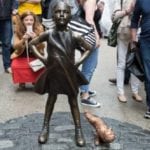 Creepy
Creepy  Creepy
Creepy  Movies and TV
Movies and TV 10 Movies That Get Elite Jobs Right, According to Experts
 Weird Stuff
Weird Stuff 10 Times Real Laws Were Based on Bizarre Hypotheticals
 Animals
Animals 10 Inspiring Tales of Horses Being Human
 Mysteries
Mysteries Top 10 Haunting Facts About the Ghost Ship MV Alta
 History
History 10 Surprising Stories About the Texas Rangers
 Humans
Humans 10 Philosophers Who Were Driven Mad by Their Own Theories
 Miscellaneous
Miscellaneous 10 Video-Game-Worthy Weapons and Armors from History
 Weird Stuff
Weird Stuff 10 Psychics Who Accurately Predicted Wartime Events
 The Arts
The Arts 10 Pieces of Art Inspired by a Broken Heart
 Creepy
Creepy 10 Death Superstitions That Will Give You the Creeps
 Movies and TV
Movies and TV 10 Movies That Get Elite Jobs Right, According to Experts
 Weird Stuff
Weird Stuff 10 Times Real Laws Were Based on Bizarre Hypotheticals
Who's Behind Listverse?

Jamie Frater
Head Editor
Jamie founded Listverse due to an insatiable desire to share fascinating, obscure, and bizarre facts. He has been a guest speaker on numerous national radio and television stations and is a five time published author.
More About Us Animals
Animals 10 Inspiring Tales of Horses Being Human
 Mysteries
Mysteries Top 10 Haunting Facts About the Ghost Ship MV Alta
 History
History 10 Surprising Stories About the Texas Rangers
 Humans
Humans 10 Philosophers Who Were Driven Mad by Their Own Theories
 Miscellaneous
Miscellaneous 10 Video-Game-Worthy Weapons and Armors from History
 Weird Stuff
Weird Stuff 10 Psychics Who Accurately Predicted Wartime Events
 The Arts
The Arts 10 Pieces of Art Inspired by a Broken Heart
Top 10 Most Controversial Pardons In US History
Pardons are some of the most controversial acts any president will ever undertake. After all, who wouldn’t be upset that the president is setting free a convicted felon?
Still, presidents haven’t always been shy about using that power. The late P.S. Ruckman Jr., a professor of political science and editor of the blog Pardon Power, tallied more than 30,000 individual acts of presidential clemency from George Washington to Barack Obama.
Amid the ongoing investigations into President Donald Trump’s alleged ties to Russia during the 2016 election, an unprecedented and extraordinary suggestion has emerged: that Trump could pardon himself, his family members, and his associates. Whether the president can pardon himself is a legal gray area, but Trump wouldn’t be the first president to pardon a family member. We’re looking at you, Bill Clinton.
So as we anticipate the results of the investigations by Special Counsel Robert Mueller and Congress, let’s take a look back at some of the most controversial pardons and commutations in US history.
10 Clinton Pardons His Own Brother
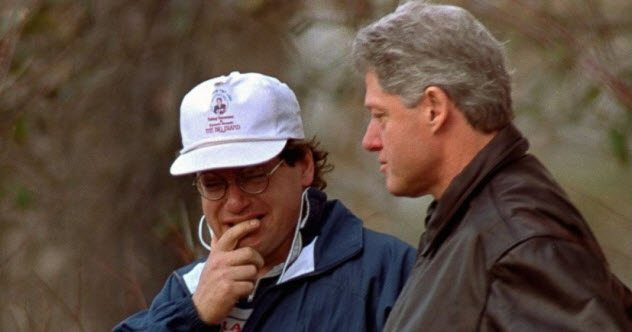
Just hours before handing the presidency over to George W. Bush, Bill Clinton pardoned over 100 Americans. Among them was Roger Clinton Jr., President Clinton’s younger half brother. Roger, whom the Secret Service had code-named “Headache” for his controversial behavior, had been convicted in 1985 for cocaine possession and drug trafficking.
Interestingly, Roger had served time in federal prison for conspiracy to distribute cocaine to an undercover police officer in a sting operation authorized by none other than then-Arkansas Governor Bill Clinton.[1]
The presidential pardon drew outrage and claims of nepotism. Despite being given a second chance, Roger apparently didn’t learn his lesson. In June 2016, then-59-year-old Roger Clinton was arrested for driving under the influence near Los Angeles, California.
Barack Obama did not pardon the Clintons before leaving office. Perhaps Roger was banking on Hillary winning in 2016?
9 Johnson Pardons Confederates
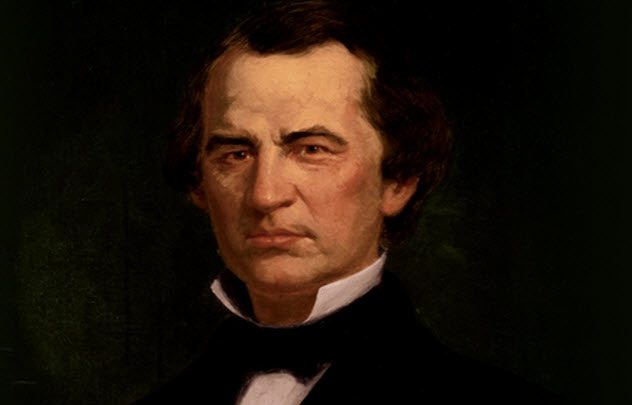
Nowadays, you’d be shocked to hear of a Southerner in favor of amnesty. But it hasn’t always been that way.
When Andrew Johnson assumed the presidency on April 15, 1865, after Abraham Lincoln’s assassination, most assumed that Johnson would act harshly toward Southerners for their rebellion during the Civil War. As a result, many Southerners absconded to Mexico, Canada, and other countries. But just over a year later, Johnson had issued 12,652 pardons.
Then, on Christmas Day 1868, Johnson issued the broadest amnesty proclamation, offering “[unconditional] . . . amnesty for the offense of treason against the United States or of adhering to their enemies during the late civil war, with restoration of all rights, privileges, and immunities under the Constitution and the laws which have been made in pursuance thereof.”[2]
Bitter over Johnson’s post–Civil War policies, Radical Republicans in Congress went on to impeach Johnson on unrelated charges. Nine of the 11 articles of impeachment specified Johnson’s removal of Edwin Stanton as Secretary of War. This was alleged to be a breach of the Tenure of Office Act, under which a president could not remove certain executive officers without Senate approval.
Johnson was acquitted at trial by the Senate and left office in 1869.
Interesting side note: In 1872, a law was passed to stop former high-level Confederate officials like Jefferson Davis, former president of the Confederacy, from serving in public office or voting. Davis was also specifically denied amnesty in an 1876 bill that restored all citizenship rights to the rest of the former Confederates. Davis chose not to apply for a pardon. It wasn’t until 1978 that Jimmy Carter posthumously restored Davis’s full citizenship rights.
8 Buchanan Pardons The Mormons
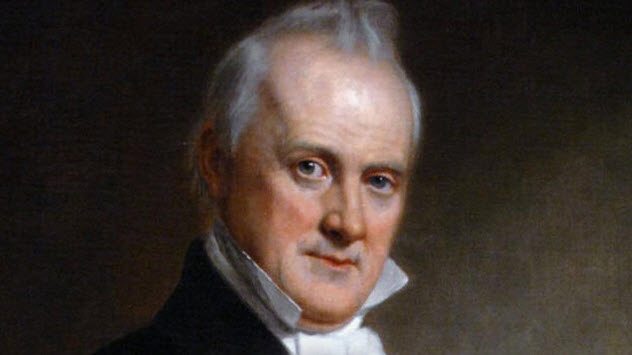
Brigham Young, an early leader of The Church of Jesus Christ of Latter-day Saints, led the Mormons to Utah in the 1840s and founded Salt Lake City in 1847 with other church members. By 1851, Young had been appointed governor of the Territory of Utah.
Although things went swimmingly at first, Young was also known as an autocrat. By 1857, President James Buchanan had become concerned that Young was turning Utah into a theocracy. In fact, one of Buchanan’s first major acts as president was to dispatch an army expedition to retake control of the territory.
In what became known as the Utah War, Young’s followers participated in a year-long standoff with the US Army. The affair was largely bloodless, but it was blighted by a September 1857 incident in which a group of Mormons killed more than 100 civilian members of a California-bound caravan.
Embarrassed by the massacre and his inability to take over Utah, Buchanan offered a pardon to all the Utah Mormons, including Young, on the condition that they accept the sovereignty of the United States. Young accepted the pardon on behalf of all his followers.[3]
7 Pardoned One Day, Hanged The Next
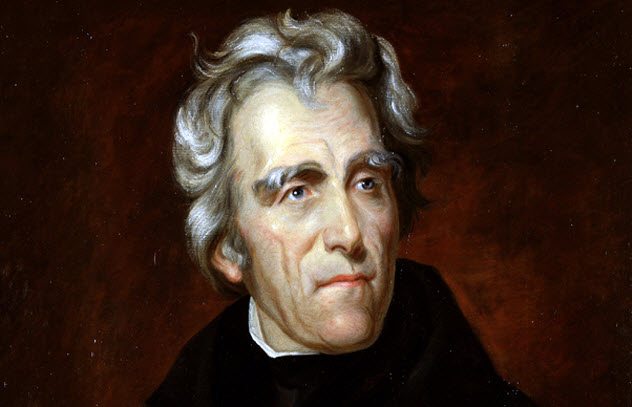
In April 1830, mail carriers James Porter and George Wilson were charged with several counts of crimes relating to obstructing delivery of the mail, robbery of the mail, and endangering the life of mail carriers. The following month, the court found Porter and Wilson guilty and sentenced both to death.
Although Porter was hanged in July, President Andrew Jackson issued a pardon to Wilson, thanks to friends lobbying on his behalf. That’s when things took a strange turn. For inexplicable reasons, Wilson refused the pardon.
A constitutional crisis emerged: Does a person have the right to refuse a presidential pardon? Like all good constitutional crises, the matter was referred to the Supreme Court.
The Attorney General represented the government, and Wilson represented himself. The court sided with Wilson and noted in its judgment: “The court cannot give the prisoner the benefit of the pardon, unless he claims the benefit of it. [ . . . ] It is a grant to him; it is his property; and he may accept it or not, as he pleases.”[4]
In the end, Wilson was hanged.
6 Ford Pardons Nixon
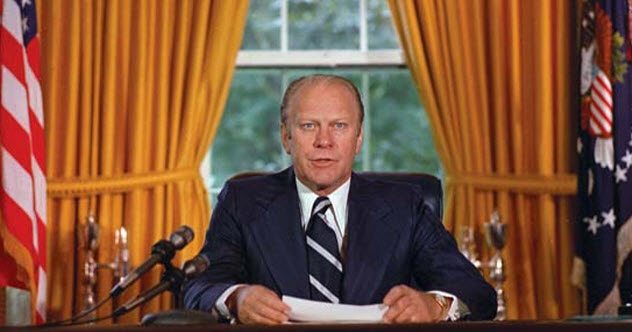
In perhaps the most infamous presidential pardon in US history, one president pardoned his predecessor.
During the early morning of June 17, 1972, a security guard on a routine check of the Watergate complex in Washington, DC, found tape covering locks on several doors. When police arrived, they apprehended five men who had broken into the headquarters of the Democratic National Committee. They were caught stealing documents and bugging phone lines.
After years of investigation, authorities discovered that all five men had ties to the Committee to Re-elect the President (aka CREEP), referring to then-President Richard Nixon. He had gone to great lengths to cover up the conspiracy and was ordered by the Supreme Court to hand over recordings of his conversations in the White House to Congress.
The tapes revealed that the president knew about the break-in and was involved in the cover-up. Facing the near certainty of impeachment, Nixon resigned in disgrace on August 9, 1974.
Nixon was succeeded as US president by Gerald Ford. One month later on September 8, 1974, Ford granted Nixon a full, unconditional pardon for any crimes he may have committed. At the White House, switchboard operators said they were deluged with “angry calls, heavy and constant,” after Ford’s announcement.” Ford said in a 1984 interview: “The political fallout was far more serious than I contemplated.”[5]
5 Governor Beebe Pardons His Own Son
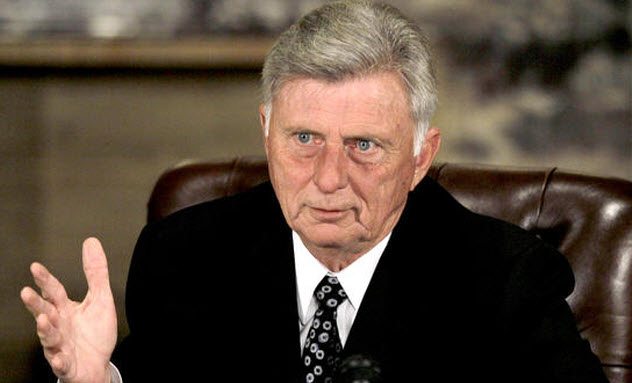
“Mr. Governor, I am asking for a second chance at life. I am asking for a second chance to be the man that I know that I can be.” These were the written words of Kyle Beebe when he applied for a pardon from his father. Yes, you read that right. Kyle Beebe wrote to his father, Arkansas Governor Mike Beebe, for a pardon.[6]
In 2003, the younger Beebe was convicted of possession of marijuana with intent to deliver. He was fined and received three years of probation. When Kyle was arrested, his father said, “If he broke the law, he needs to pay for it. He needs to be treated like everybody else—no better, worse.”
But Governor Beebe seems to have changed his tune. At the time of the pardon, he said, “Kids when they’re young do stupid stuff. He was no different. [ . . . ] I would have [pardoned him] a long time ago if he’d have asked, but he took his sweet time about asking. He was embarrassed.”
4 Trump Pardons Arpaio
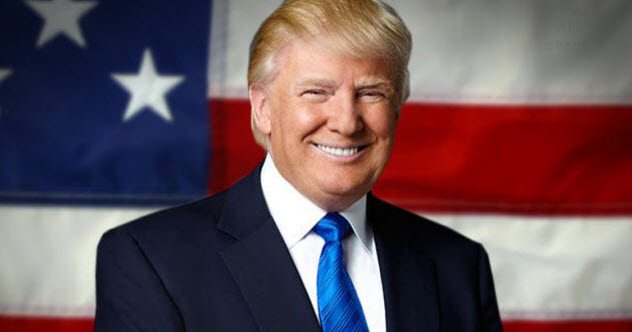
Joe Arpaio, who called himself “America’s toughest sheriff,” was found guilty of criminal contempt in summer 2017. The former sheriff of Maricopa County, Arizona, was convicted of violating a court order to stop detaining suspected illegal immigrants unlawfully. This practice especially affected Latinos. The 85-year-old was facing up to six months in jail.
Just weeks after his conviction, Arpaio, who had been a fierce supporter of Donald Trump during the 2016 presidential campaign, was pardoned by the president. This action drew strong backlash from civil rights advocates, with the ACLU calling the pardon “a presidential endorsement of racism.”[7]
Arpaio’s pardon was the first issued by Donald Trump.
3 Bush Pardons Scooter Libby
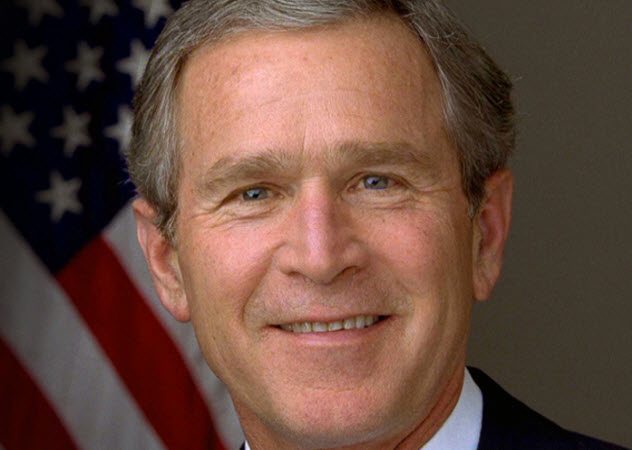
On July 2, 2007, President George W. Bush commuted the prison sentence of I. Lewis “Scooter” Libby. Libby was then-Vice President Dick Cheney’s former chief of staff. Although a pardon forgives the crime, a commutation simply reduces the punishment for the crime.[8]
Libby was facing up to 30 months in federal prison after he was convicted of perjury, obstruction of justice, and lying to federal agents during an investigation into the unlawful disclosure of covert CIA operative Valerie Plame’s identity.
Prosecutors argued that Libby had leaked Plame’s identity to get back at Joe Wilson, her husband. Wilson had gone public with allegations that the Bush administration had twisted the evidence used to justify the invasion of Iraq.
Libby was only weeks away from starting his prison term when Bush issued the commutation. In 2010, Bush revealed that Vice President Dick Cheney angrily confronted Bush during his last days in office and asked him to fully pardon Libby. Bush refused.
2 Obama Pardons Chelsea Manning
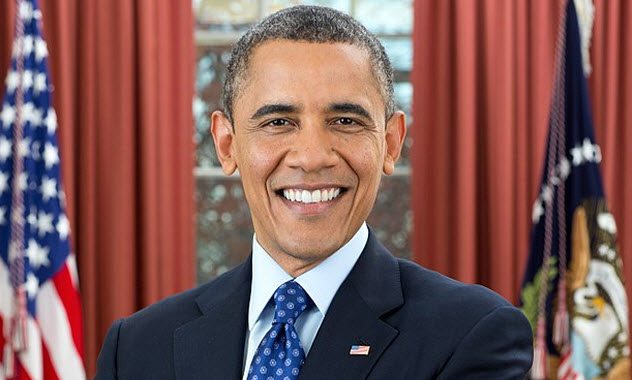
Chelsea Manning, a former US Army soldier, was convicted in July 2013 on multiple charges of violating the Espionage Act and stealing government property related to the leaking of around 750,000 pages of classified or sensitive documents.
Reactions to the leaks were strong and set off a political firestorm. Although some in the intelligence community said that the leaks placed American lives at risk, others argued that Manning was an important whistle-blower shedding light on the atrocities of war.
In the closing days of his administration, President Barack Obama commuted Manning’s 35-year sentence to time served plus 120 days (which was seven years total). Manning, a trans woman, had been serving her sentence at an all-male prison.[9]
In January 2018, Manning declared her intention to run for the US Senate in Maryland.
1 Carter Pardons Draft Dodgers
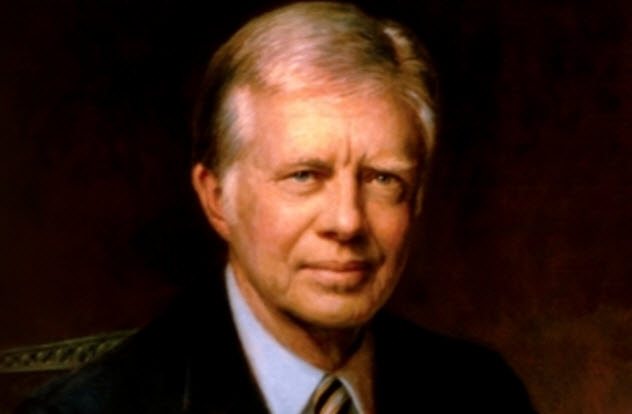
On his second day in office, January 21, 1977, President Jimmy Carter fulfilled one his most controversial campaign pledges by pardoning all who avoided serving in the Vietnam War by fleeing the US or not registering. Although the pardon was greeted with enthusiasm by many, veterans’ groups were outraged.
Some critics believed that the pardon would cause draftees to break the law in the future. Others felt that such a pardon was disrespectful to the people who had served during the Vietnam War.[10]
The pardon was also criticized by those who believed that it didn’t go far enough. While the pardon was unconditional, it only pertained to civilians. It did not affect active-duty soldiers, estimated to be up to one million individuals, who deserted or went AWOL during the Vietnam War.
Oscar is a student at the University of Oxford where he is pursuing a Master of Public Policy.
Read more about controversial convictions and pardons on 10 People Who Were Wrongly Convicted Of Nonexistent Crimes and 10 Convicts Presumed Innocent After Execution.


![Top 10 Most Important Nude Scenes In Movie History [Videos] Top 10 Most Important Nude Scenes In Movie History [Videos]](https://listverse.com/wp-content/uploads/2019/09/sharonstone-150x150.jpg)

